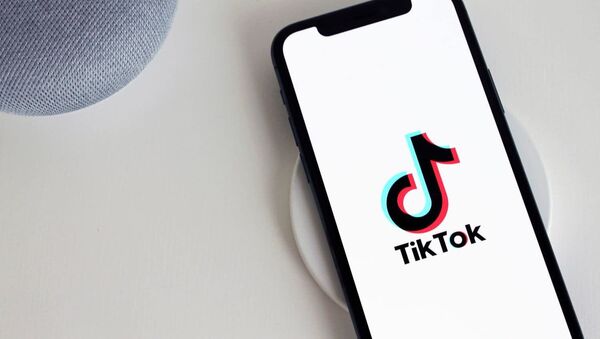Disney's streaming chief Kevin Mayer has left the company to become the new chief executive of TikTok.
Mayer will join TikTok's owner, the Chinese-based ByteDance, as chief operating officer.
The 58-year-old will be tasked with "driving the global development of ByteDance, as well as overseeing corporate functions including corporate development, sales, marketing, public affairs, security, moderation, and legal," reads a ByteDance press release.
"In his role as COO, Kevin will lead music, gaming, emerging businesses, and will serve as CEO of TikTok, leading the rapidly growing platform as it continues to build its global community of creators, users, and brands."
He will start at ByteDance on 1 June and will report directly to its founder and CEO Yiming Zhang, according to the press release.
Who is Kevin Mayer?
Mayer led Disney's Direct-to-Consumer and International segment, which comprises the corporation's streaming services and overseas media operations, since its founding in 2018. His biggest achievements in that role oversaw the launch of streaming services Disney+ and ESPN+, as well as the integration of Hulu. Since its launch just six months ago, Disney+ emerged as a major player in the crowded streaming market and singed up more than 54 million subscribers.
Mayer previously served as Disney's senior executive vice president and chief strategy officer, and played an important role in expanding Disney through mergers, including last year's $71.3-billion acquisition of 21st Century Fox.
His new appointment comes as ByteDance is preparing to launch its own music streaming app Resso to rival Apple Music and Spotify. The service has already been released for testing in India and Indonesia.
A challenge in the US
Meanwhile, TikTok, the teen-beloved app that allows users to create lip-synced clips of popular songs, has come under scrutiny in the United States, which is exploring multiple ways to challenge China's technological dominance.
TikTok has been specifically accused of transferring the data of US-based users to severs in China and instructing content moderators to censor clips that could displease the Chinese government, claims it strongly denies.
A bill was introduced in Congress in March to ban federal employees from installing the app on government devices. The legislation cited concerns about the alleged links between ByteDance and the Chinese government, which the company dismissed as "unfounded."
In November, the US government launched a national security review of ByteDance’s $1-billion merger with the American social media app Musical.ly into TikTok. The following month, the US Navy banned the app from its government-issued mobile phones, calling it a “cybersecurity threat”. The Navy never expanded on what kind of threat TikTok may be posing.
ByteDance in response pledged to open a transparency centre in the US, where outside experts could monitor its moderation policies, and hired several high-profile Western executives in recent months. Those include Erich Andersen, Microsoft's former chief intellectual property counsel, who joined ByteDance as global general counsel, and Vanessa Pappas, YouTube's global head of creative insights, who now oversees TikTok operations in the United States.

